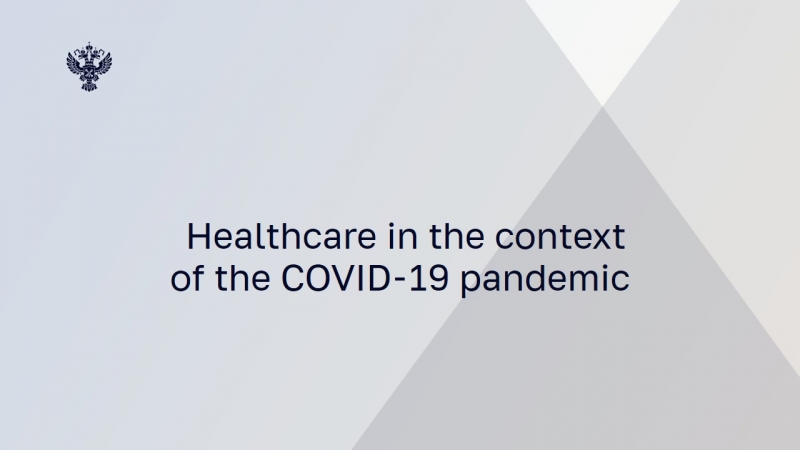The sharp increase in the number of coronavirus patients has shown that health systems around the world are not ready to work in emergency situations. Here we present key findings announced by governments and international organizations.
1. Lack of Medical Personnel and Equipment
The high percentage of severe and extremely severe forms of the disease in some countries (for example, in the UK, Italy, the USA and South Korea) led to the rapid depletion of human resources as well as stocks of biomedical materials and equipment, including personal protective equipment, test systems and ventilators. In order to bridge deficit of medical personnel, governments engage doctors from related fields or already retired specialists and final-year students.
On March 9, 2020, the Italian government announced the possibility of mobilizing retired doctors and nurses for up to 6 months as well as final-year medical students. The main goal was to engage additional 20 thousand medical workers.
In France, Italy, Spain, and some Canadian provinces, healthcare professionals receive priority access to childcare centers. This measure allows them to continue working when schools are closed and there is no one to leave their children with.
Industrial giants also give doctors a hand. General Motors, Renault, Tesla, Philips, and Apple are converting their production and preparing to manufacture personal protective equipment and medical equipment.
In the United States, under the Defense Production Act, the Department of Health and Human Services has entered into a deal with Philips to supply 43,000 ventilators for a total of $646.7 million.
General Motors will produce 30 thousand ventilators for the needs of the US Department of Health and Human Services.
Apple has designed a protective face shield, which is planned to be provided to doctors working with COVID-19 patients. The company plans to produce 1 million of such personal protective equipment weekly.
2. Lack of Intensive Care Units
The cases of China and Italy have shown the importance of ensuring a sufficient number of hospital beds and building the capacity of intensive care units to receive a large number of patients.
Japan and Korea have the largest number of beds in intensive care units—more than 7 per 1 thousand people and Germany—6 per 1 thousand people. For most OECD countries, the number varies from 2.5 to 5. Moreover, in countries such as Mexico, Canada, Chile, Sweden, Israel, Spain, and the United States, the figures are less.
Under such circumstances, hospitals around the world optimize the current facilities and try not to use intensive care units unless absolutely necessary.
3. Spread of Infection Affects Psychological State of People
OECD countries currently have about 15% of the population with mild or moderate mental disorders, and additional 5% with serious mental illnesses.
Special online resources that contain practical recommendations for overcoming the crisis are created for people experiencing tension, depression or loneliness.
There are recommendations to pay more attention to those who currently need support. For example, many applaud medical personnel at certain time in the evening or write words of support on social media. One can help the elderly or lonely people with their daily needs: the purchase of food and medicine.
4. Vaccine Development to Take About 1.5 Years
At least 35 laboratories and research institutes from all around the world are developing a vaccine against coronavirus. Among other things, clinical trials of various drugs used to treat other diseases are being conducted. But most world experts and the WHO agree that it will take up to a year and a half to develop an effective vaccine.
In Russia, the virologic center Vector in Novosibirsk began to conduct preclinical tests of an experimental vaccine. Three more vaccine prototypes were created by the Federal Medical-Biological Agency (FMBA). FMBA plans to receive the first test results in June 2020, and the second phase is planned to be completed by the beginning of QIII 2020.
In Europe, the main players are German pharmaceutical companies BioNTech and CureVac. In China, a vaccine prototype called Ad5nCoV was developed by the Academy of Military Medical Sciences in partnership with CanSino Biologics, a Hong Kong-based company.
5. Need to Control Effective Use of Funds to Combat Coronavirus
The quality of public services, the availability of medicines and equipment, transport infrastructure capacity, training for qualified personnel, and food security and support for businesses and citizens: all these issues need to be assessed by supreme audit institutions.
The British SAI conducted an audit of the healthcare system which showed how unprepared it is for the peak of the epidemic that is expected to hit the country in June 2020. This audit also identified severe shortages of medical personnel.
In Venezuela, state auditors instruct regional control and accounting authorities to review prices for essential goods and medical products and assess if they are overstated.
The full version of the digest can be found here.
News
How the Coronavirus Changes Healthcare: Mobilizing Staff, Help from Business, Support for People
25.06.2020

